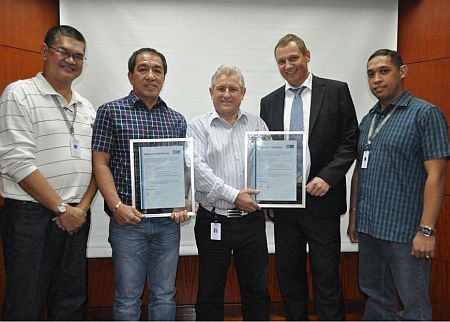
Germanischer Lloyd (GL) has attested to the compliance of “Jebsens Maritime, Inc.” and “Selandia Crew Management Philippines Inc.” with the recruitment and placement requirements of the Maritime Labour Convention, 2006 (MLC 2006). The attestation certifies that the two companies conform to the standards set forth in Regulation 1.4 of the MLC 2006. The certificates were officially handed over to both companies during a ceremony at their headquarters in Manila at the end of October this year.
The MLC 2006 requires that ship-owners confirm that any seafarer recruitment and placement services they use, in countries or territories that have not adopted the new Convention, are in conformance with its standards. As the Convention does not contain the requirements or a guideline on which to base this confirmation, GL has developed a Certification Standard to assist ship-owners and their recruitment and placement service providers comply with this section of the MLC 2006. “Our new Certification Standard provides optimum preparation and a smooth transfer to overall compliance with the MLC 2006 for our customers”, says Olaf Quas, GL’s Global Head of Practice ISM/ISPS/MLC 2006.
This Certification Standard is part of GL’s comprehensive ILO CERT service. Which in addition contains a voluntary assessment tool, the MLC ANALYSER, and a pre-certification tool, the MLC PRE CERT, designed to support customers in their efforts to comply with the MLC 2006 and effect a smooth, speedy transfer to MLC 2006 certification. In addition to the certification programme, GL offers international workshops and seminars to help ship owners and managers understand the regulations of the Convention and implement its requirements.
Adopted by the International Labour Organization (ILO) in 2006, the Maritime Labour Convention, 2006 deals with the working and living environment of seafarers on seagoing ships. The new Convention provides both mandatory requirements and non-mandatory guidelines on issues such as age, qualification, hours of work and rest, the existence of seafarer’s employment agreements, evidence of payment of wages, manning levels, medical care, and the availability of decent accommodations and recreational facilities for seafarers, as well as food and catering.
We use cookies to improve your experience. By continuing to use our site, you accept our Cookies, Privacy Policy,Terms and Conditions. Close X